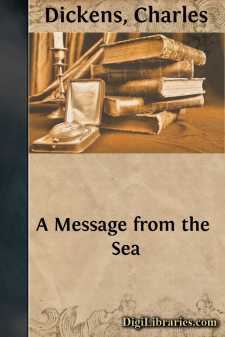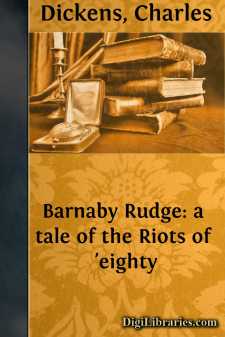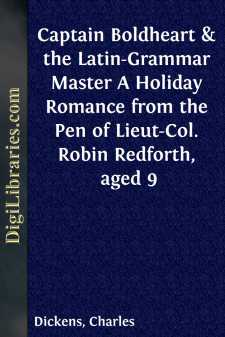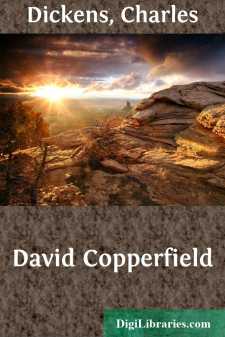Categories
- Antiques & Collectibles 13
- Architecture 36
- Art 48
- Bibles 22
- Biography & Autobiography 813
- Body, Mind & Spirit 142
- Business & Economics 28
- Children's Books 16
- Children's Fiction 13
- Computers 4
- Cooking 94
- Crafts & Hobbies 4
- Drama 346
- Education 46
- Family & Relationships 57
- Fiction 11829
- Games 19
- Gardening 17
- Health & Fitness 34
- History 1377
- House & Home 1
- Humor 147
- Juvenile Fiction 1873
- Juvenile Nonfiction 202
- Language Arts & Disciplines 88
- Law 16
- Literary Collections 686
- Literary Criticism 179
- Mathematics 13
- Medical 41
- Music 40
- Nature 179
- Non-Classifiable 1768
- Performing Arts 7
- Periodicals 1453
- Philosophy 64
- Photography 2
- Poetry 896
- Political Science 203
- Psychology 42
- Reference 154
- Religion 513
- Science 126
- Self-Help 84
- Social Science 81
- Sports & Recreation 34
- Study Aids 3
- Technology & Engineering 59
- Transportation 23
- Travel 463
- True Crime 29
Charles Dickens
Charles Dickens was a renowned English writer and social critic, born on February 7, 1812, and is celebrated for his vivid characters and depictions of Victorian society. Among his most famous works are "A Tale of Two Cities," "Oliver Twist," and "Great Expectations," which continue to be widely read and studied today. Dickens' literature often highlighted social injustices and the plight of the poor, contributing significantly to social reform in 19th-century England.
Author's Books:
Sort by:
by:
Charles Dickens
CHAPTER I—ANCIENT ENGLAND AND THE ROMANS If you look at a Map of the World, you will see, in the left-hand upper corner of the Eastern Hemisphere, two Islands lying in the sea. They are England and Scotland, and Ireland. England and Scotland form the greater part of these Islands. Ireland is the next in size. The little neighbouring islands, which are so small upon the Map as to be mere dots,...
more...
by:
Charles Dickens
MARLEY'S GHOST. Marley was dead: to begin with. There is no doubt whatever about that. The register of his burial was signed by the clergyman, the clerk, the undertaker, and the chief mourner. Scrooge signed it: and Scrooge's name was good upon 'Change, for anything he chose to put his hand to. Old Marley was as dead as a door-nail. Mind! I don't mean to say that I know, of my own...
more...
by:
Charles Dickens
INTRODUCTION The combined qualities of the realist and the idealist which Dickens possessed to a remarkable degree, together with his naturally jovial attitude toward life in general, seem to have given him a remarkably happy feeling toward Christmas, though the privations and hardships of his boyhood could have allowed him but little real experience with this day of days. Dickens gave his first formal...
more...
by:
Charles Dickens
CHAPTER I—THE VILLAGE “And a mighty sing’lar and pretty place it is, as ever I saw in all the days of my life!” said Captain Jorgan, looking up at it. Captain Jorgan had to look high to look at it, for the village was built sheer up the face of a steep and lofty cliff. There was no road in it, there was no wheeled vehicle in it, there was not a level yard in it. From the sea-beach to the...
more...
by:
Charles Dickens
I. The PeriodIt was the best of times,it was the worst of times,it was the age of wisdom,it was the age of foolishness,it was the epoch of belief,it was the epoch of incredulity,it was the season of Light,it was the season of Darkness,it was the spring of hope,it was the winter of despair,we had everything before us, we had nothing before us, we were all going direct to Heaven, we were all going direct...
more...
by:
Charles Dickens
INTRODUCTION. There are few things more familiar or more interesting to the public than this cause célèbre. It is better known than many a real case: for every one knows the Judge, his name and remarks—also the Counsel—(notably Sergeant Buzfuz)—the witnessess, and what they said—and of course all about the Plaintiff and the famous Defendant. It was tried over seventy years ago at “the...
more...
by:
Charles Dickens
Chapter 1 In the year 1775, there stood upon the borders of Epping Forest, at a distance of about twelve miles from London—measuring from the Standard in Cornhill,' or rather from the spot on or near to which the Standard used to be in days of yore—a house of public entertainment called the Maypole; which fact was demonstrated to all such travellers as could neither read nor write (and at that...
more...
by:
Charles Dickens
FOREWORD The story contained herein was written by Charles Dickens in 1867. It is the third of four stories entitled "Holiday Romance" and was published originally in a children's magazine in America. It purports to be written by a child aged nine. It was republished in England in "All the Year Round" in 1868. For this and four other Christmas pieces Dickens received £1,000....
more...
by:
Charles Dickens
CHAPTER 1. I AM BORN Whether I shall turn out to be the hero of my own life, or whether that station will be held by anybody else, these pages must show. To begin my life with the beginning of my life, I record that I was born (as I have been informed and believe) on a Friday, at twelve o'clock at night. It was remarked that the clock began to strike, and I began to cry, simultaneously. In...
more...
by:
Charles Dickens
TROTTY VECK AND HIS DAUGHTER MEG."TROTTY" seems a strange name for an old man, but it was given to Toby Veck because of his always going at a trot to do his errands; for he was a ticket porter or messenger and his office was to take letters and messages for people who were in too great a hurry to send them by post, which in those days was neither so cheap nor so quick as it is now. He did not...
more...











